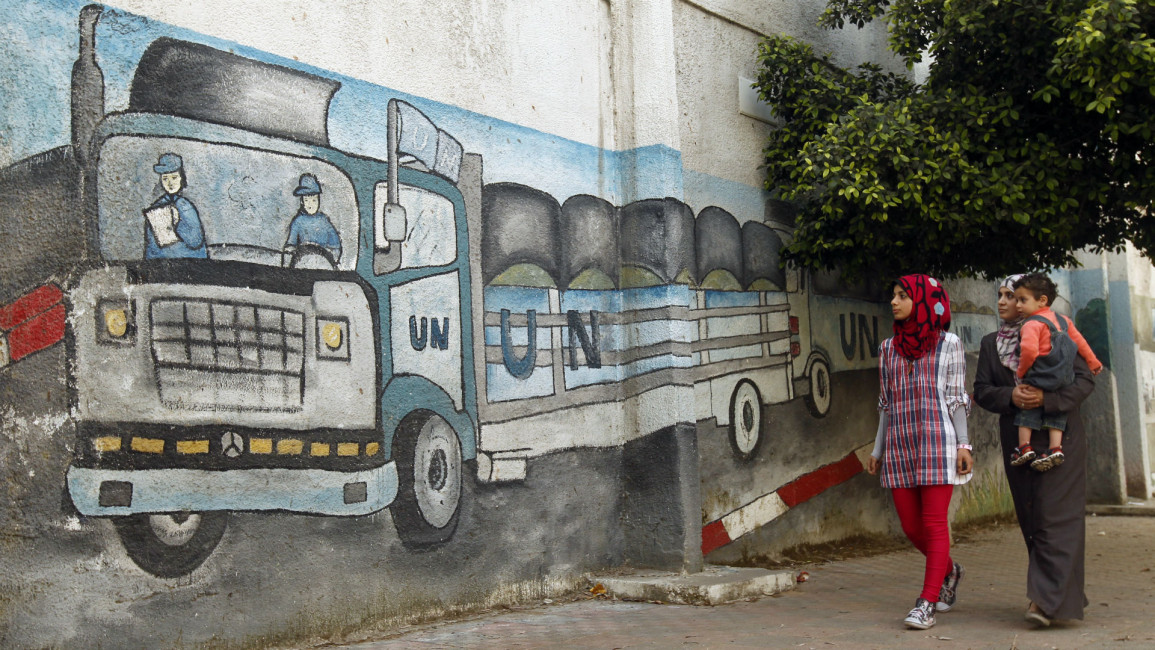
A step forward or an exercise in futility?
The twists and turns of the long-running conflict between Israel and the Palestinians have kept the world riveted for years. The failed UN resolution that led to the Palestinian application to join the International Criminal Court (ICC) marks yet another.
The application came after a first ever direct approach to the UN Security Council, the Palestinians acting through their Jordanian sponsors, last month presented a resolution that called for an end to the Israeli occupation of Palestinian land by 2017 and the establishment of a Palestinian state based on the 1967 borders.
On the face of it, this should have been an uncontroversial resolution, nothing more than a re-statement of an international position often repeated and supposedly endorsed by the US, its western allies and the international community. It conforms to the Arab peace initiative of 2002, the Quartet's position in the peace process, the PLO's decision in 1988 to settle for a state on the 1967 territories, and in line with previous UN resolutions calling for Israel's withdrawal from occupied Arab territory.
|
The Palestinian ICC application has set a fox loose in the hen house. Read Jonathan Cook here |
Despite all this, the Palestinian resolution failed to achieve the required number of states to support it, thanks to the usual US skulduggery on behalf of Israel. The ninth state needed for a majority, Nigeria – which according to the Palestinians was due to vote for the resolution – was strong-armed by the US in the last half-hour and abstained, thus ensuring the resolution's defeat. As a consequence, however, the Palestinian president went on to sign 19 international treaties, most significantly among them, to accede to the Rome Statute of the International Criminal Court, an indication of the depth of Palestinian anger at the UN decision.
Saving the cause
On one level, this disappointment is legitimate and understandable. On another, the Security Council vote may just, and quite unwittingly, have saved the Palestine cause from total extinction. The resolution that the Palestinian Authority (PA) wished to see passed embodies a number of dangerous proposals and assumptions, the most serious of which is the stipulation that with their adoption, no further claims can be made by either party against the other and the conflict would be deemed to have ended. Other clauses in the resolution are no less problematic. At the outset it speaks of a 'just and comprehensive' solution to the conflict, while advocating precisely the opposite.
For a start it proposes to divide the country into two grossly unequal parts, the larger for Israel and the smaller for the Palestinians. The borders of this new state would approximate to the 1967 lines with 'land swaps', whose size and location are unagreed and unspecified. It calls for a 'sustainable' solution for Gaza, but not explicitly for an end to its crippling and illegal siege. The refugee issue, the backbone of the Palestine cause, is briefly dealt with by vague references to a 'just' solution in line with international law but no furthest specification about the right of return or its implementation. Equally vague is the stipulation that the parties would resolve all 'permanent status issues' at the end, recalling the failed formula of the Oslo Accords.
The most serious assumption in the resolution, however, is its insistence that the two-state solution be arrived at by negotiation only and its condemnation of all forms of violence. At one stroke, this clause restricts Palestinian aspirations to the attainment of just 22 per cent of their original land and accepts the division of Jerusalem into Israeli and Palestinian halves. It cancels not only the search for other solutions, but also the right of Palestinians to resist their oppressor by any means including armed struggle.
Return to the world stage
The question therefore that Palestinians must ask is this: who gave the PA licence to present these proposals on their behalf? The Popular Front for the Liberation of Palestine (PFLP) has denounced the resolution, as has the Hamas leadership. There are also reports of popular dissatisfaction with the resolution in the West Bank and Gaza. The PLFP alleged that its text was not offered for inspection by the PLO executive committee and only discussed verbally with them. The wider Palestinian public was neither informed nor consulted. The imitative was described as a dangerous surrender of basic Palestinian rights that would end the conflict on unjust terms.
This high-handed tendency for Abbas and his inner circle to take unauthorised initiatives and circumvent the popular will is not new. In 2011, the Palestine Papers, published by theGuardian and al-Jazeera, gave an account of secret peace negotiations between the Abbas leadership and the Israelis. They revealed an embarrassing picture of Palestinian willingness to surrender basic rights in return for a deal to set up a Palestinian state. When the facts were revealed at the time, no one resigned for that betrayal and now it seems to most people that something of the same is happening again at the Security Council.
But there is a positive side to the story. The Security Council process, though unsuccessful, has served to return the Palestinians to the world stage and reaffirmed their rights, as did the 132 states that recognised Palestinian statehood at the UN in 2012 and the recent spate of recognitions by EU member states. These latter may only be symbolic, but they are nevertheless a powerful endorsement of the Palestinian case. No wonder Israel and its friends are so furious.




